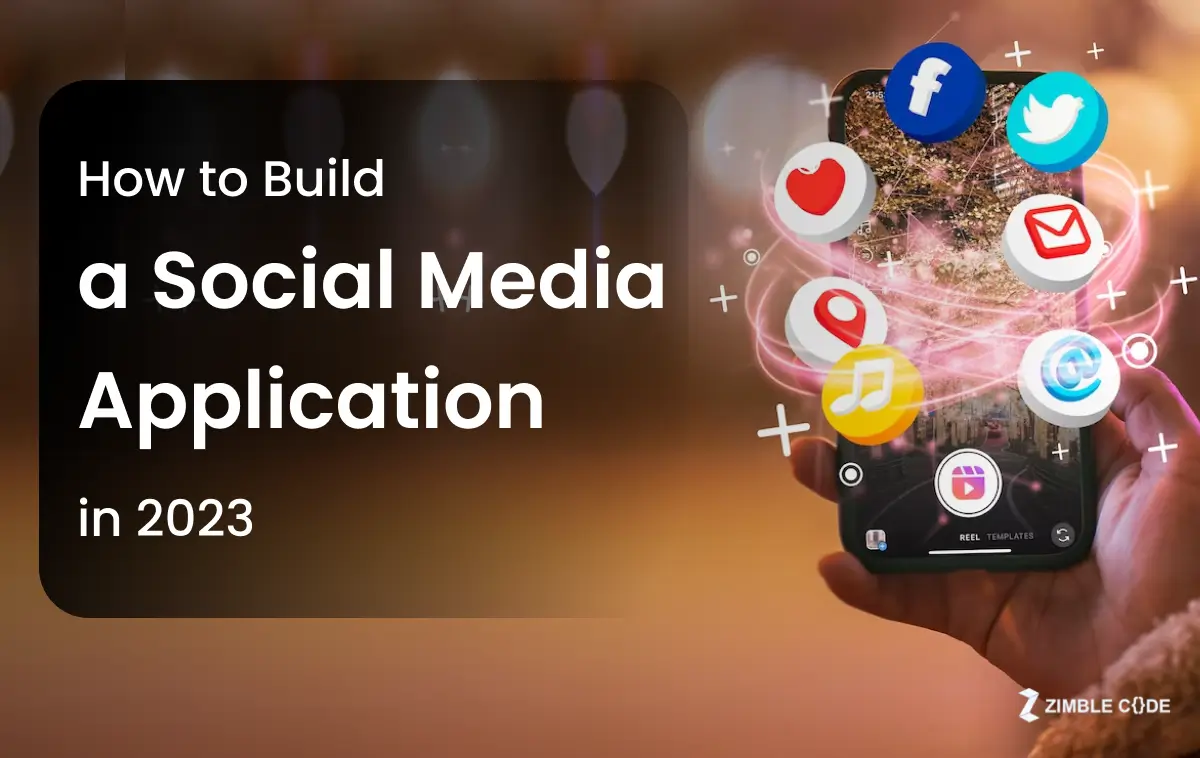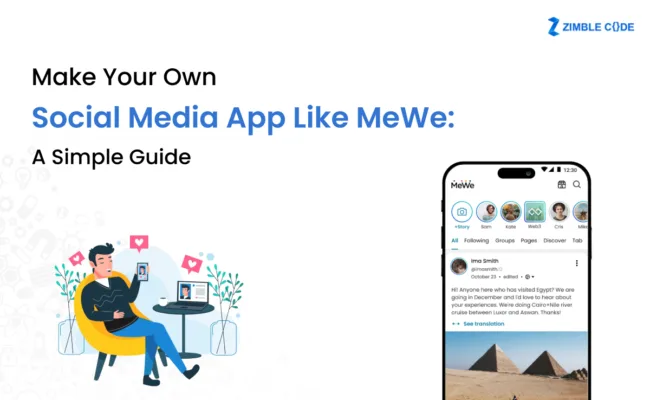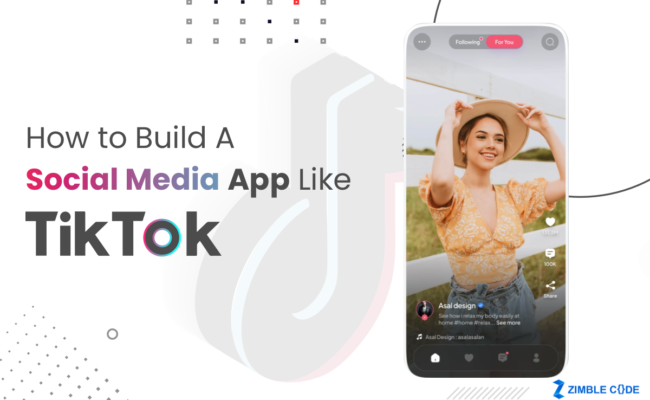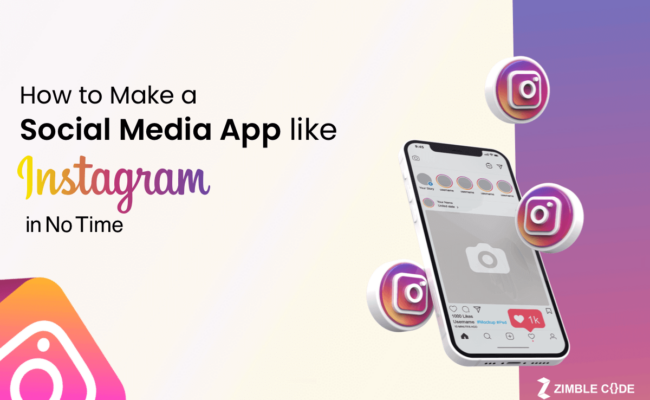In the modern digital era, it is rare to encounter an individual who isn’t engaged on social media platforms. These applications have revolutionized how we communicate, transforming various aspects of media, culture, education, politics, and business. Social networking sites seem endless, from YouTube and Facebook to Instagram, LinkedIn, Twitter, and TikTok.
Recent statistics from a reputed mobile app development company in the UK indicate that approximately 4.89 billion individuals are active on social media accounts worldwide as of 2023, representing a 6.5% growth compared to the previous year. Moreover, it is projected that this number will reach around six billion by 2027, reflecting the continuous expansion and influence of social media on a global scale.
Is it the right time to launch your social media app in Manchester? If yes, you should know to get started.
But before that, let us take a sneak peek at the different varieties of apps currently thriving in the market.
Different Types of Social Media Applications
When thinking about social media applications by hiring a Social Media App Development Company, the usual ones that come to mind are Facebook, Instagram, or TikTok. However, various categories of platforms fall into this realm:
- Social Network Apps: These apps, such as Facebook and Instagram, are designed to connect people and provide a platform for sharing thoughts, experiences, and images. Over time, they have evolved into valuable marketing tools for large and small companies.
- Media Sharing Networks: These platforms facilitate sharing various media types, including videos, photos, and GIFs. Examples of media-sharing networks include YouTube, Snapchat, and TikTok. They encourage user-generated content, allowing creators to make, upload, edit, curate, and share content.
- Social Review Networks: Apps in this category provide social proof about products and services, allowing users to find company information without wasting time and money.
- Community and Discussion Forums: While discussion forums may have lost some popularity with the rise of social networks, they remain relevant to many communities. Platforms like Reddit and Quora enable people to connect on specific topics, share unique experiences, and find communities with similar interests.
- Bookmarking and Content Curation Networks: Bookmarking sites help users organize resources and websites by tagging and categorizing links. Pinterest is an example of a platform that serves as both a bookmarking site and a marketing tool for promoting businesses, blogs, YouTube channels, and other creative works.
- Blogging and Publishing Platforms: Distinct from content management systems like Wix or WordPress, blogging and publishing platforms enable users to create profiles and share posts on various topics without the need to build a website or pay hosting fees.
- Interest-based Networks: These social media apps focus on specific topics or hobbies, catering to the interests of particular user groups. For instance, Goodreads allows users to share their thoughts about books and create recommendation lists.
- Anonymous Social Networks: Anonymous social sites enable users to ask questions or share stories without revealing their identities. These platforms are viral among teenagers who want to discuss controversial topics anonymously.
- Microblogging: Microblogging platforms like Plurk or Twitter allow users to share short entries within a maximum character limit, such as 280 characters. Users are encouraged to engage in discussions, comment, and retweet posts. This feature attracts business owners who can promote their products and services engagingly and concisely.
How to Develop a Social Media App?
Once you have opted for the type to create your own social network app, it is time to get started…
Step 1: Define the Target Audience
The initial step in creating a successful social media app is understanding the environment, defining a specific niche, and identifying the target audience. While the development stage is crucial, it is equally important to understand the app’s purpose clearly and its intended users.
Here are some essential steps to consider before diving into social network app development:
- Market research
- Finding a niche
- Defining the target audience
While the answer may seem straightforward, it requires deeper consideration. Understanding your target audience’s needs and preferences will enable you to create detailed project specifications.
Step 2: Choose the Revenue Model
Revenue generation is critical to consider when developing a social media app. Here are some monetization strategies you can adopt:
- Advertisements
- Freemium model
- In-app purchases
Selecting the most suitable revenue model will depend on factors such as your target audience, app features, and market trends.
Step 3: Develop a USP and Strategy
Merely knowing how to create a social media app is just the beginning. Copying an existing app will not lead to success. To stand out and increase the chances of success, developing a unique set of features and a compelling Unique Selling Proposition (USP) is crucial.
- Conduct a SWOT analysis
- Prepare Business Model Canvas
Step 4: Choose the Right Features
The social network app development approach varies depending on the specific case, as there is no one-size-fits-all solution. Here are some basic features to consider when building a social media app:
- User profile
- Social authorization
- Content uploading
- Posts Creation
- Feed
- Notifications
- Search tab
- User interaction
- In-app messaging
- Account Analytics
Consider incorporating these features while customizing them to align with your app’s unique goals and target audience.
Step 5: Choose Social Media App Development Company in Manchester
To bring your idea of a social media app to life, you’ll likely need assistance from experts who know how to develop such apps. Hiring professionals with expertise in social media app development can be the most efficient and cost-effective option in the long run.
Working with an experienced IT outsourcing team ensures minimal redoing and unexpected delays and eliminates scalability and customization issues. You can create your dream app without micromanaging every step of the development process.
Step 6: Select the Technology Stack
Understanding the underlying technology is essential when creating a social media app. The technology stack required for social network app development depends on your target platform.
Android:
- Programming language: Kotlin, Java
- Integrated Development Environment (IDE): Android Studio
- Software Development Kit (SDK): Android SDK
- Notifications: Google Cloud Messaging
- Geolocation: Google Map API
- AR filters: ML Kit
iOS:
- Programming language: Swift, Objective-C
- IDE: Xcode
- SDK: Cocoa Touch
- Notifications: Apple Push Notifications
- Geolocation: MapKit
- AR filters: ARCore
Step 7: Promote Your Social Media Application
After launching your social media app, the work is far from over. App promotion is crucial to attract users and increase visibility. Here are several strategies you can employ:
- App Store Optimization
- Organic User Acquisition
- Paid ads
- Influencer marketing
- Partnership promotions
Wrapping Up!
Social media has transformed into a vital channel through which billions of individuals access information about the world. What initially served as a platform for connection has evolved into something of great importance today. Consequently, social media holds a prominent position in present-day society and boasts an extensive user base, making it one of the largest markets available. If you are considering entering this market and developing a social media app, there is no more opportunity to seize.
Frequently Asked Questions (FAQs)
Q1. How much does social media app development cost?
Typically, the cost of developing a social media app typically ranges from $30,000 to $250,000. However, this cost can vary depending on several factors, including the specific features included, the complexity of the user interface and user experience design, and the technology stack employed.
Q2. What are the most popular social media apps in the world?
The world’s most popular social media apps are dominated by platforms such as Facebook, YouTube, WhatsApp, Instagram, Facebook Messenger, WeChat, and TikTok.
Q3. Are social media apps profitable?
The primary source of revenue for social media companies is advertising. While some platforms, like Twitter, are exploring alternative revenue streams, such as subscription services, most social media users anticipate using these platforms for free.








Leave A Comment